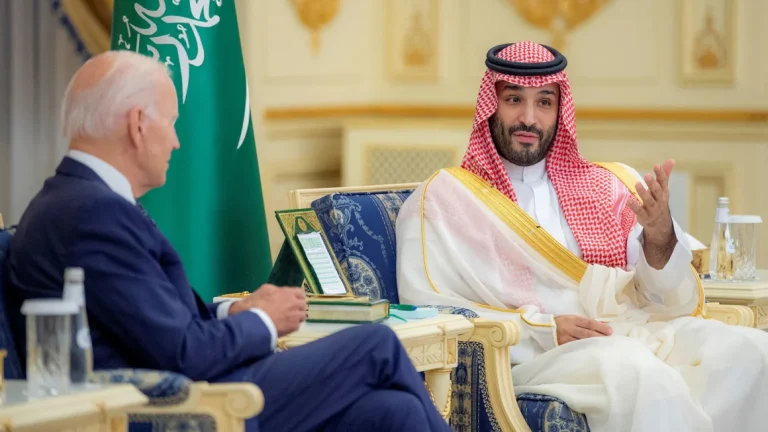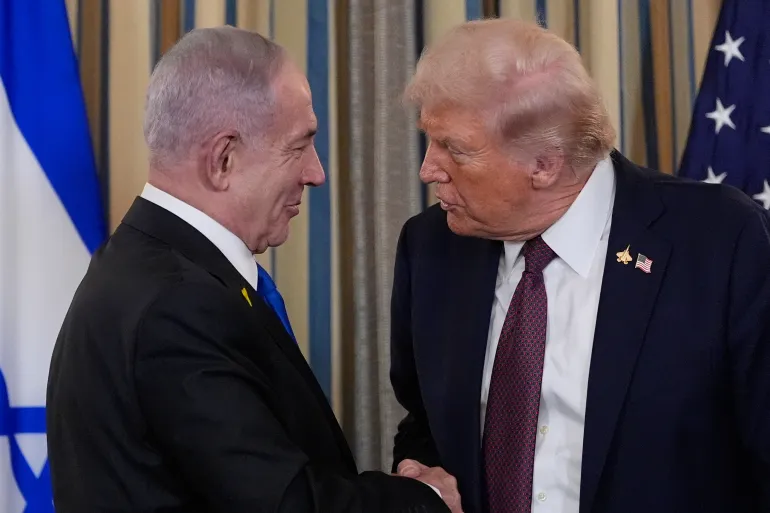Biden’s Gulf allies want an ‘ironclad’ security pact with the US. Here’s what it might look like
Two of the United States’ closest Arab allies are asking the Biden administration to formalize their military relationship with a wide-ranging agreement as Washington becomes uneasy about China’s growing role in the Middle East.
Biden’s Gulf allies want an ‘ironclad’ security pact with the US. Here’s what it might look like
Two of the United States’ closest Arab allies are asking the Biden administration to formalize their military relationship with a wide-ranging agreement as Washington becomes uneasy about China’s growing role in the Middle East.
Saudi Arabia and the United Arab Emirates, two of the US’ closest military partners in the Arab world, have called for more security support from Washington of late, and both have indicated that in an increasingly multipolar world, their options aren’t limited to the US.
“They (the Americans) don’t want to see Saudi Arabia shifting their armament from America to another place,” Saudi Crown Prince Mohammed bin Salman (MBS) told Fox News’ Bret Baier in an interview last month.
Anwar Gargash, the UAE president’s diplomatic adviser, last month described the US’ involvement in the Middle East as “a positive thing.” Speaking at the Al-Monitor and Semafor Global Summit, the UAE official however stressed the importance of cementing that involvement so “that there are no vacuums” – which, he warned, would only “give opportunities for other players to move into.”
It is important to move from an “informal” security arrangement “to something that’s formal,” he said at a conference in New York, calling for a new, “ironclad” security arrangement with the US. The demand for a formal arrangement that would offer Gulf states a security umbrella and bind the US to protecting them in the face of military attacks has become an essential component in ties with the US.
Gulf states have over the past few years faced attacks they have blamed on Iran and its proxies, and have found the US’ response to them inadequate.
“Only a substantive security commitment by the United States would be perceived by regional adversaries as a deterrent to their ambitions to topple the U.S.-led regional order of which Saudi Arabia is the anchor,” Ali Shihabi, a Saudi analyst, wrote in an article for the Hoover Institution, a public policy think tank at Stanford University, in July. “If the United States wants to fully leverage with Saudi Arabia its own capacity to project military power into the region, then it needs to reintroduce deterrence by making such power projection tangible and reliable.”
A security pact is at the heart of Saudi Arabia’s talks with Washington over potential normalization of ties with Israel – which, if achieved, would mark a significant foreign policy win for President Joe Biden ahead of the 2024 US presidential elections.
Last month, MBS for the first time publicly acknowledged the normalization talks, saying his country was moving “closer” each day to reaching a deal with Israel.
What a security pact could look like
Experts say the Gulf states may be disappointed as the US is unlikely to extend a blanket security agreement that could get it further bogged down in the Middle East’s conflicts and require a cumbersome legislative approval process in a Congress where Saudi Arabia remains unpopular due to its human rights record.
Discussions over the potential agreement have not been made public, but experts have put forward a number of ideas, from treaties that recognize Gulf security as part of US national interest, to declaring the Gulf nations Major Non-NATO Allies, to a formal security commitment from the US such as those signed with Japan and South Korea.










